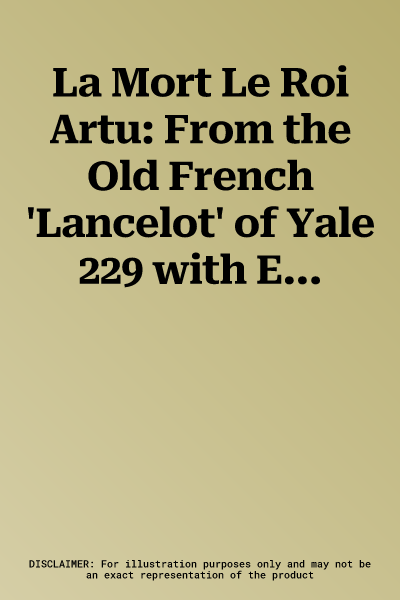The multi-volume project responds to long-standing lacunae in Old French
text study and Arthurian scholarship, in that it aims to provide a
linguistically and scribally authentic text of a single illustrated
Arthurian manuscript; in this case, it is one that has never before been
edited, collated, or translated. Since research on text, language, and
manuscript may be impeded by editorial policies operative in older
editions of medieval narratives and since viewing the manuscripts
directly is often difficult or impossible, the editorial board set
protocols for the Lancelot Prose of 229 editions that would address the
need for authentic, accessible texts, packaged with ancillaries to
address a variety of reading and experience levels. At the same time,
the board wished to take into account the potential of electronic images
to enhance scholarly work and teaching based on the editions. The idea
of a strictly diplomatic edition was discarded in light of digital
technologys ability to provide high-resolution images of an original
that are useful for close private study and public viewing. Thus each
edition provides a useful, portable, authentic reading of Old French
Arthurian narrative that is supported externally by online electronic
images and internally by a selection of wonderful illustrations and a
variety of ancillary materials and essays developed through years of
study and teaching based on Yale 229. The Mort begins with the return of
Bohors from the quest of the Holy Grail and narrates the declining
fortunes of King Arthur and his Round Table through the dissolution of
the Table and the death of Arthur. The tale includes Morgains efforts to
convince Arthur of Lancelot and Guineveres adultery, Lancelots battle to
save Guinevere from burning at the stake, the dramatic discovery of
Guinevere and Lancelot by Arthurs knights, the departure of Arthur from
his kingdom to fight Lancelot, and Arthurs leaving his Kingdom, the keys
to his treasury, and his Queen in the hands of the treacherous Mordret.
In the closing folios, Arthur is mortally wounded by Mordret at the
apocalyptic Battle of Salisbury Plain, and Lancelot returns to avenge
Arthur against Mordrets two sons at the final Battle of Winchester. The
book closes shortly after the death of Lancelot, with a rejection of the
life of court and chivalry in favor of penance and spiritual
fulfillment.

